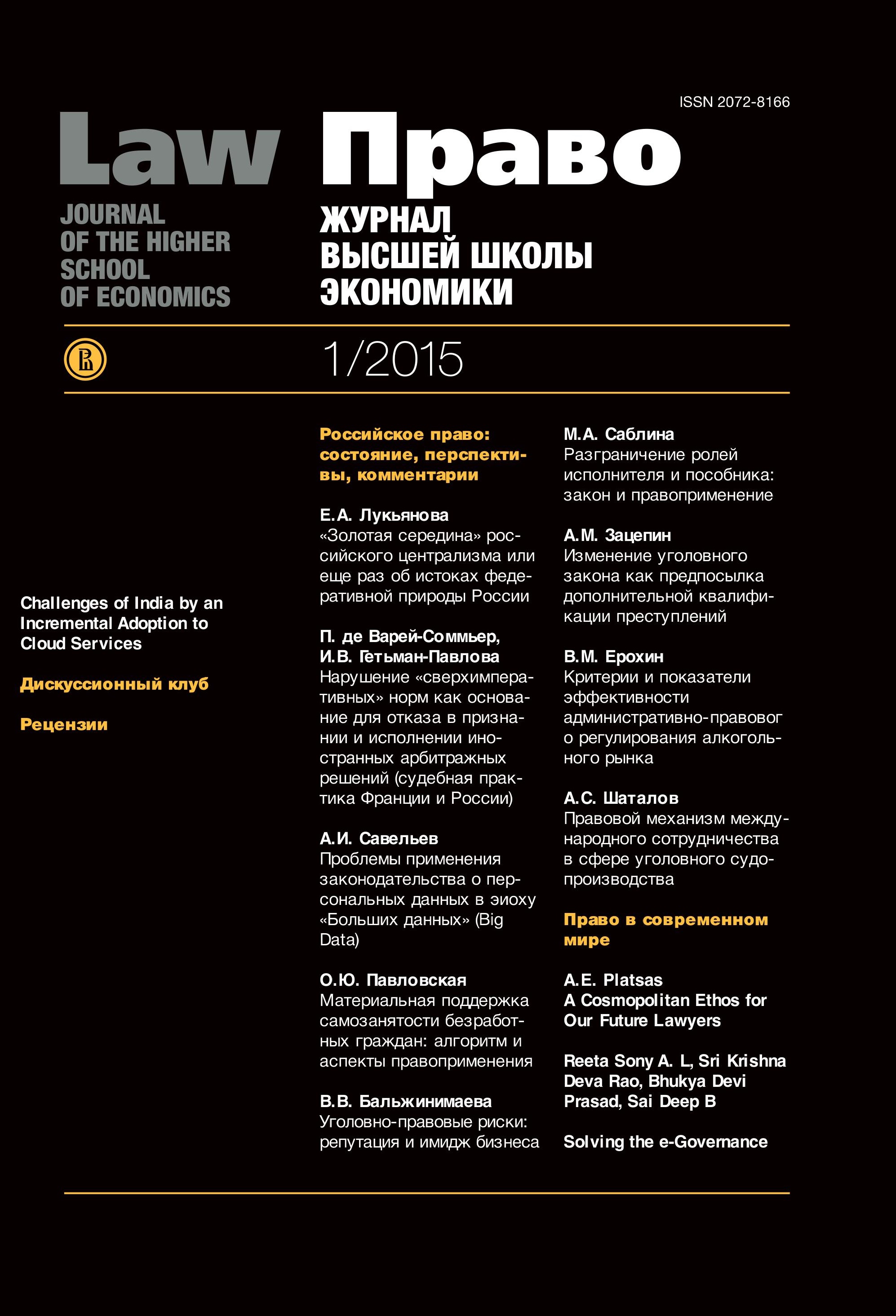Violating Super-imperative Norms as Grounds to Refuse the Recognition and Execution of Foreign Arbitrage Decisions(Judicial Practice of France and Russia)
Abstract
This article examines the problem of refusing the recognition and enforcement of foreign arbitral awardsdue to the violation of the mandatory rules of the country of execution. The authors analyze to whatextent such rules should be violated to become legitimate grounds to denythe recognition and enforcementof a foreign decision. The basis of the research is the French and the Russian judicial practice.In the first part of the article, the authors separate the concept of mandatory rule from public policy andclaim them as two different legal institutions, two different legal categories, with an adjacent character.The mechanism of action of peremptory norms is significantly different from the public policy exception.The public policy exception is only valid in cases of violation or threatened violation of fundamentallegal principles that have a higher peremptory, universal nature of public interest and constitute thebasis of economic, political and legal system in view of international obligations of the state. Peremptorynorms (immediate application) are the norms, which, because of inner signs or because of theirspecial importance to the rights and interests of civil circulation participants, regulate certain relations,regardless of the applicable law. Mandatory rules are often referred to as internationally mandatoryrules, rules of direct application and the laws of international public policy, pointing to their mandatorycharacter and their communication with public policy. At the same time, the Court of Cassation does not include the mandatory rules of the forum in its international public policy. Russian court practiceincludes mandatory rules in the concept of public policy of the Russian Federation. In the second partof the article, the authors examine whether a simple violation of peremptory norms of the country whereenforcement of the award amount to a violation of public policy. The conclusion is drawn that the simpleviolation of such rules is not considered as a violation of public order of France or Russia. Refusal togrant an exequatur can take place only if the violation of a peremptory norm is “obviously real andconcrete” and qualifies as a “simple” violation of international public policy. However, the authors emphasizethat this approach can lead to unjustified extension of the scope of the public policy exception.
Published
2015-02-18
How to Cite
Get’man-PavlovaI. (2015). Violating Super-imperative Norms as Grounds to Refuse the Recognition and Execution of Foreign Arbitrage Decisions(Judicial Practice of France and Russia). Law. Journal of the Higher School of Economics, (1), 22-42. https://doi.org/10.17323/2072-8166.2015.1.22.42
Issue
Section
Russian Law: Condition, Perspectives, Commentaries


















